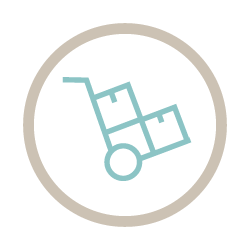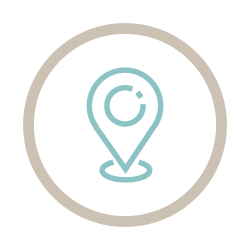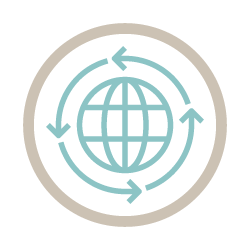Moving to Australia
Relocating overseas?
With its outstanding natural beauty and relaxed lifestyle, more and more people are looking to move to Australia. Life Down Under is seen by many as a great opportunity to enjoy great employment prospects and a good climate within a culture that has a feel of ‘home’.
You’d think that moving all of your worldly goods to literally the other side of the world would prove to be a major logistical headache. But you needn’t worry; we’ll take all of this stress away, allowing you to concentrate on other aspects of your emigration to Australia.
We will sit down with you and help make a plan for what needs to be done, and then we’ll provide a free, no-obligation removal quotation which is tailored to your requirements.
If you chose to accept our quotation we’ll be on hand to guide you through the whole moving process. We will advise on preparing your items for shipment, the rules on importing items into Australia as well as the documentation you will need to complete. Then on your moving day we’ll ensure that all your belongings are packed carefully and you are ready to start your journey to your new home.
If you are planning to move but don’t have a set date or address that is fine, we just need an approximate date and location to give you a realistic budget figure.
We have put together a Guide to Planning your Removal Overseas Download here

Documents*
Documents you will require;
- A colour copy of your Passport:
- Australian Citizens photo page only
- Other nationalities photo page plus every stamped page.
- A copy of your Visa.
- Australian Customs Form B534
- Numbered Inventory / Packing list of goods
- If you are shipping alcohol you will need to provide a detailed list.
- Australia Quarantine Inspection Service (AQIS)
- Receipts for any goods you have owned for less than 12 months. (Must be listed on your B534 form).

Timeframes & Schedule
Sole Use Containers
The quickest way to ship your effects to Australia is by sole use container. The container is packed at your property and driven directly to the port where it is loaded on the next outbound ship.
Shipping containers generally come in two sizes;
- This container holds 1050 cu ft.; large enough to hold an average 2- 3 bedroom house.
- This container holds 2100 cu ft.; large enough to hold an average 3- 4 bedroom house
Shipment to Australia can take between 6-8 weeks, with allowance for some seasonal fluctuations. You should then allow a further two weeks to clear customs before delivery to your new home.
Groupage
Our groupage service is recommended for smaller consignments as you pay only for the space you occupy in the container. Consignments are export packed at your home and taken to our warehouse where it is consolidated with other consignments bound for the same destination, as soon as volumes permit.
Shipment to Australia by groupage generally takes between 10 – 12 weeks plus an additional 2 weeks to clear customs.

Shipping Cars*
Cars can be shipped to Australia subject to approval by the Australian Department of Transport. You will generally be required to provide evidence that you have owned the car for at least 12 months prior to shipping and you will be liable for additional duty and tax charges.
You will also be required to prepare your car for shipment. This includes ensuring it is cleaned and free from soil and debris (including the underside). We will be able to advise you further on the steps required.
Please note you must have applied and been granted Import Approval before shipment. Failure to do so can mean your car is impounded upon arrival and you will become liable for costly storage fees.
To check if you are eligible to import your vehicle click here.

What can't I take?*
Certain items cannot be accepted under general conditions of carriage and storage e.g. explosives, flammable gasses, lithium batteries, poisons & toxins, scuba tanks, gas cylinders.
Australia has its own strict guidelines of what can’t be taken into the country, especially items which they deem a danger to their habitats and agriculture. Items of biosecurity concern are those which originate from animals and plants or may have come into contact with animals, plants, soil or water.
Below is a summary of some of the everyday items that are prohibited or restricted.
Prohibited Goods
The items listed below will be seized and destroyed by AQIS.
- Prohibited or unidentified seeds, nuts and plants (food and ornamental)
- Feathers, furs, skins, tusks from endangered species,
- Soiled items, or items containing organic residues
- Items knowingly infested with pests or a disease
Restricted Goods
Some everyday items which are restricted and must be declared include;
- Alcohol; High levels of customs duties are payable on alcohol.
- Glazed ceramic ware.
- Wooden items; Untreated woods will either be seized or treated (charges apply).
- Items made from plants; Christmas decorations and other craft items.
- Animal products; Such as tusks, taxidermy, items stuffed with animal hair
- Products derived from bees; Such as candles and honeycomb.
- Antibiotics and prescription drugs are limited to 3 months’ supply which should be carried as accompanied baggage with a copy of the prescription.
The above lists a by no means exhaustive. Further details on restricted and prohibited items can be found on the Australian Dept. of Agriculture website
Or if you have a specific item you wish you check use the Australian Import Conditions Database—BICON

What isn't covered in the removal cost?*
It is important that all details about your properties and access to them are passed on to us. Unless specifically requested, charges for storage, special lifting equipment and tranship due to limited access for a large vehicle are excluded from the quotation. You are also responsible for parking permits and charges.
You will also be liable for any duties or customs charges that become payable on inspection of your goods upon their arrival in Australia.
Containers arriving in Australia are subject to inspection by DAFF (Department of Agriculture, Fisheries & Forestry). If your container holds items of particular interest it will almost certainly be inspected; this can range from items on the banned or restricted items list to items such as lawn mowers and pushchairs which may have been in contact with soil or plants.
Inspection charges vary from port to port but can be in excess of $750 for a 40 ft. container. There also may be additional charges for fumigation, steam cleaning or treatment for items which have not been sufficiently cleaned prior to shipment or show sign of infestation.
Duty and Tax
As long as certain criteria are met duty charges and Goods and Services Tax (GST) are waived on personal goods owned and used by you for the 12 months prior to shipment.
If you are shipping inherited goods, wedding gifts, antiques or items you have not owned for more than 12 months please let us know so we are able to advise you further.
Further details on Duty, GST and concessions can be found here.

What happens when my goods arrive at their destination?*
When your consignment arrives at the destination port or airport our destination partner will contact you to arrange customs and quarantine formalities and a suitable date for delivery to your residence.
As we are managing your relocation we will have already ensured that all the correct documents have been completed to ensure your effects are not tied up in customs which can prove costly.
Upon delivery our destination partner will complete the unpacking of all items and position furniture at required and remove discarded packing materials.

Insurance
We take the utmost care with every shipment and use specialist boxes and protective wrap to ensure your effects arrive safety in whichever corner of the globe you are moving to. We do however recommend that you take out Marine Insurance as accidents can happen.
Cover is available on professionally packed goods for all risks of loss and/or damage in transit. Cover on owner packed boxes is limited to total loss only.
Please ensure your insure your items for full replacement value at destination, it is not advisable to under-insure your items.
We will provide you with an Insurance Proposal Form, which must be completed prior to the packing and collection date.
Insurance premiums are subject to Insurance Premium Tax (IPT), at the current rate. Please note that if you decline cover, we will rely upon our BAR Terms & Conditions (clause 8) in the unforeseen event of loss or damage, however caused.
*Please note rules, regulations and charges are subject to change and we advise all customers to obtain direct rulings from their destination customs authority.

Emigrating To Australia: What Else You Need To Know
Applying For An Australian Visa
Moving to Australia will require you to obtain the relevant visa for your residence in the country. These can be made through the Department of Home Affairs.
There are many visa options to choose from, whether you are looking for a permanent residence or a work visa, there is a separate visa to suit the needs of everyone moving to Australia.
If you are looking to become a permanent resident (PR), you will need to obtain one of the following visa’s:
- A family stream permanent visa - For dependent family members of an Australian citizen, permanent resident, or eligible New Zealand citizen.
- A workstream permanent visa - For workers who have skills that Australia requires, or those that are being sponsored by their employer.
- Business or investment-stream permanent residence visas
However, if you’re not entirely sure of the visa that you’ll need to apply for, check out the Australian Department of Home Affairs to take a look through the other options available.
Alongside the application form for your permanent residence visa application, you will be required to attach the following documents:
- Report of Educational Credential Assessment
- Birth Certificate
- Character Certificate
- Proof of Nomination
- Test results of IELTS or PTE exam for English proficiency
- 2 passport size photos
- Spouse skill documents (if applicable)
- Police Clearance Certification (PCC)
- Business reference letters
For more information on gaining a permanent residence visa when relocating to Australia, and to see the benefits of holding an Australian PR visa, click here.

Healthcare in Australia
When moving to Australia from the UK, or anywhere in the world it’s important to remember that we are incredibly lucky to have the NHS to take care of our health without having to pay extremely large amounts of money. Australia is home to one of the most comprehensive healthcare systems in the world, and in order for you to get the best care, it’s recommended to take a detailed look at this before you relocate to Australia.
Healthcare is split into two sections, the public system and the private system. Funded by the tax-payer is the public healthcare system, which can be accessed through Medicare for free or a small cost. If you are applying for a permanent resident visa, you can actually start enrolling in the Medicare system before moving to Australia. For this, you will need; a current passport or Immicard, a valid visa and proof from the Department of home affairs of your permanent resident application. Although, if you are coming to Australia on a family stream visa, you will be required to provide additional documentation to prove that your spouse, parent or child is an Australian citizen, a permanent resident, or a New Zealand citizen living in Australia.
To find out more about enrolling in Medicare, check out the Australian government website, for all the information you’ll need.
Of course, the private health system is paid for by private entities and the government. If you decide to use private healthcare, you may want to consider private health insurance if you’d like more choice in your healthcare. Insurance can cover you for things from general treatment, hospital treatment, to needing an ambulance.
Typically with private healthcare in Australia you can benefit from being able to have more choice regarding aspects of your care, less waiting times for surgeries and a private room if they’re available and suitable for your medical needs.

Pet Relocation to Australia
Pet relocation to Australia is something that needs a lot of preparation time and cannot be left to the last minute if you’d like your pet to join you when arriving in Australia.
If you’re planning to move your dog or cat then you’ll likely be able to do this without a hitch. However, if you have any other species you’ll find that you won't be able to relocate these, aside from very few exceptions, the only pets able to be relocated to the country down under are dogs and cats. Although, when moving a dog to Australia, it’s worth checking the banned dog breeds to check that your dog is not on the list.
In order for your pet to relocate to Australia, you will be required to organise an inactivated rabies vaccination, followed by a Rabies Antibody Titer Test three to four weeks later. This ensures that your pet has received adequate levels of antibodies for the rabies virus. As well as this, other tests, vaccinations and treatments that are required before moving to Australia include:
- Leptospirosis vaccination (at least 14 days before export)
- An external parasite treatment (to be administered 21 days before a blood sample is taken to detect Ehrlichia canis)
- If not fully vaccinated; tests for Brucella canis (Brucellosis), Leishmaniosis, and Leptospirosis (within 45 days of departure).
- Internal parasite treatments against nematodes and cestodes (dogs and cats)
Other recommended vaccinations for dogs moving to Australia can be found here.
Much the same as the UK, Australia requires your pet to be microchipped (which must be implanted before the rabies titer test) and don’t forget to update the contact information and address on this upon your relocation to Australia.
Moving to Australia not only requires paperwork to be filled out for your visa but also your pet’s relocation to the country. The team at Pet Relocation can help you with this, so check out their website for more information. The process can take months to complete, so it’s important that you set enough time aside for this, to ensure that your pet can join you in Australia as soon as possible.
Finally, once your pet is on its way to its new Aussie home, the final stage is a 10-day quarantine. Once your import permit has been received you can book this in straight away. Don’t panic, they’ll be well looked after, and just think that you’ll have some more time to unpack before your four-legged friends arrive and you can reunite with them without worrying about all the unpacking that needs to be done.
Please note that while Hackworthy & Sons does not offer Pet Relocation services, we are happy to make recommendations upon request.






